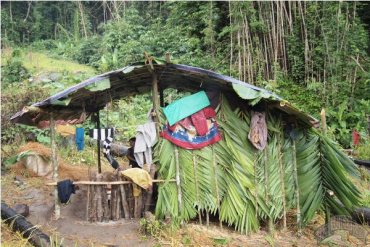As peace talks continue in the Kachin State, the Myanmar National Human Rights Commission (MNHRC) has recommended immediate de-mining; no forced recruitment of soldiers; and easy access for humanitarian aid to the conflict-stricken region.

The calls came in a statement released on March 28, following the latest round of peace talks between the Myanmar government and the Kachin Independence Organization (KIO) in Ruili on March 11-12.
"The MNHRC wholeheartedly welcomes the statement that the Union Government will accelerate development and rehabilitation tasks in the Kachin State as the process to achieve ceasefire has commenced," said the organization's statement.
However, the group said that addressing crucial human rights issues in Kachin State should be "implemented as a priority" to encourage the ongoing peace process.
No ceasefire agreement was reached during the last round of negotiations. Speaking after the meeting, Doi Pi Sar, a non-military official of the KIO, said, “What they [the government delegation] want and what we want are two different things. Their primary goal is the signing of a ceasefire agreement. However, judging by our past experiences, the hasty signing of a ceasefire agreement is not in our interests.
“We need to continue holding discussions until we are in a situation where a ceasefire agreement is the correct course of action,” he said. “Our differences cannot be solved by just one meeting. So, we have agreed to meet again.”
Peace broker Hla Maung Shwe told Mizzima at the time that, “I would like to say that this was the most fruitful meeting in the past 10 months.”
Tens of thousands of people have been displaced in Kachin state since June 2011, when a 17-year ceasefire between government forces and the KIO’s military wing, the Kachin Independence Army, broke down.
The total number of casualties is unknown, but the government said in January that 35 soldiers had been killed and 190 injured in a series of ambushes by the rebels since 2011.
Humanitarian aid to the region has notoriously been blocked by the government until recently when the UN announced that a 10-vehicle convoy was permitted to travel to the Hpakant area to bring shelter, blankets, mosquito nets, cooking sets, clothes and sanitary items to more than 2,000 refugees between February 17 and 21.
The visit was the first to the area since January 2012 by the UN.


